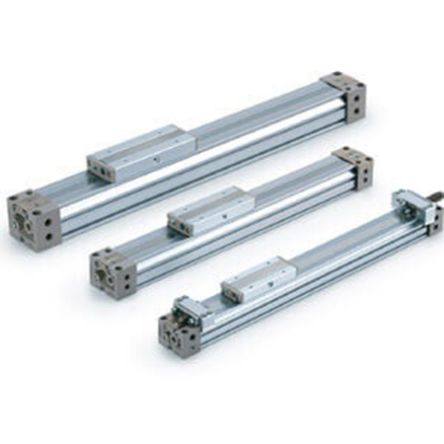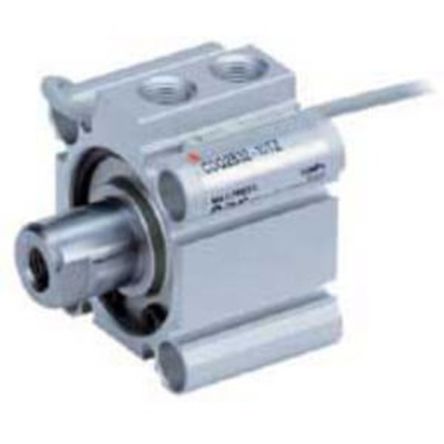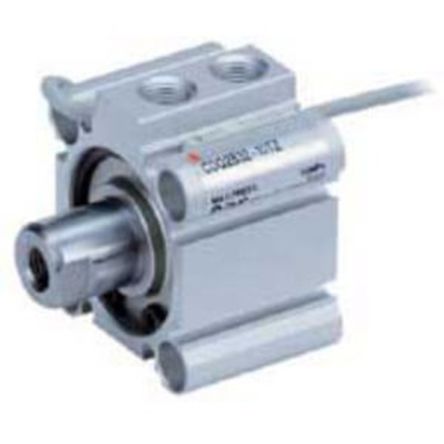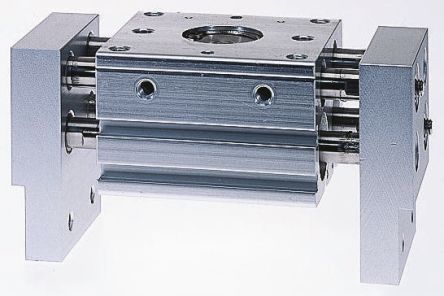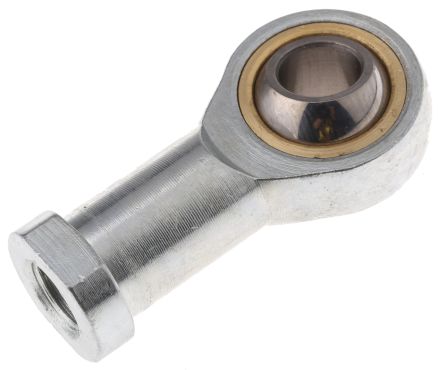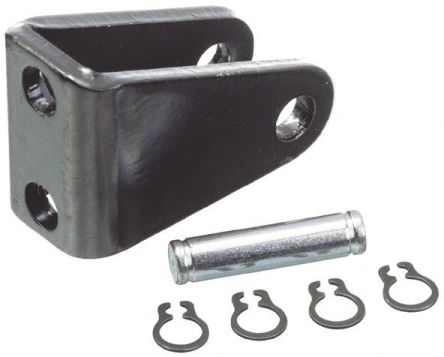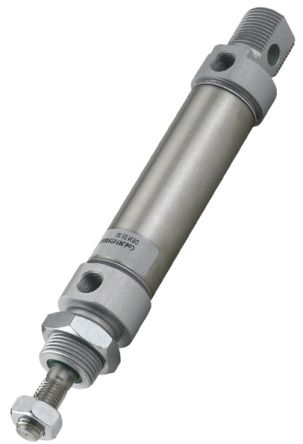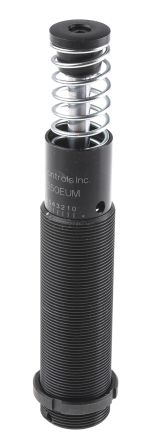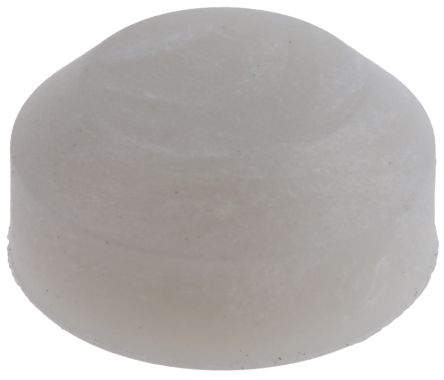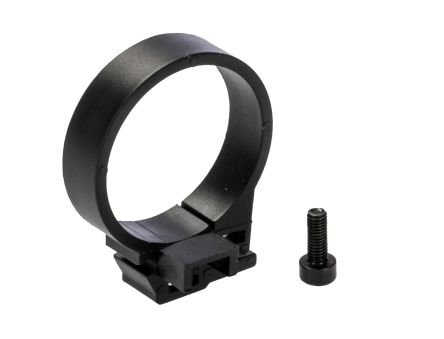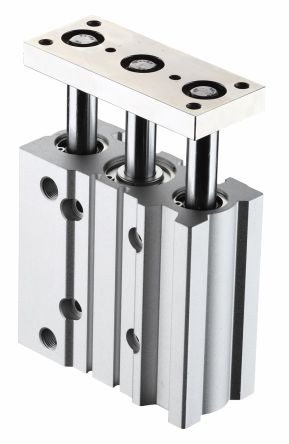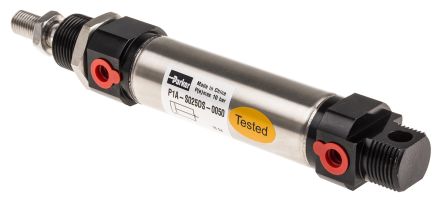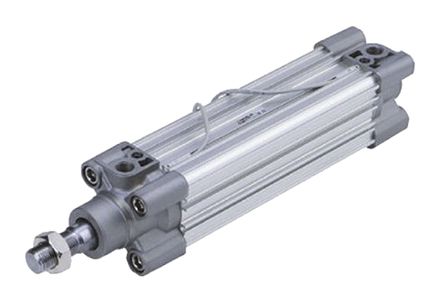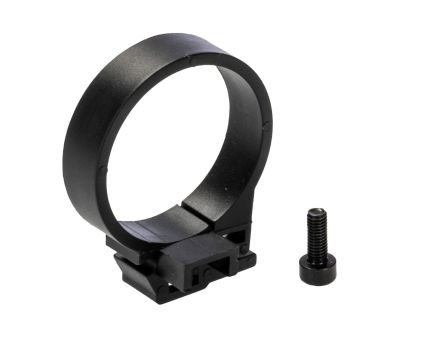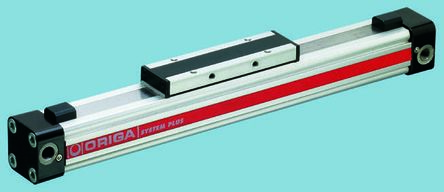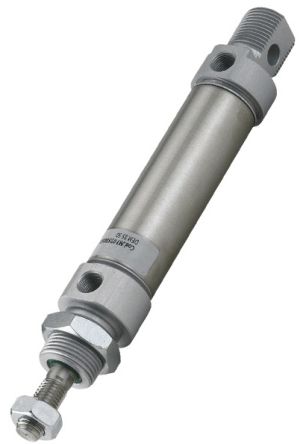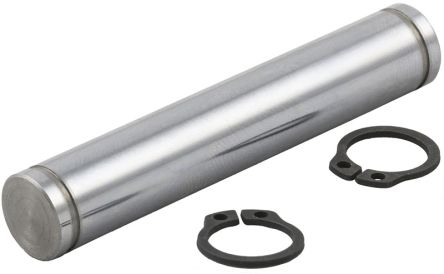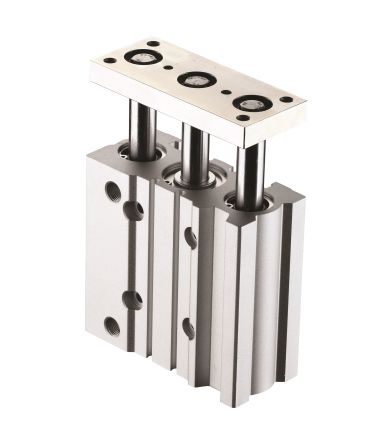We offer a great range of Pneumatic Cylinders and Actuators - ISO/VDMA profile/roundline compact, miniature, slides, and clamping. In addition, you will find grippers for pick and place, air bellows, and shock absorbers from a choice of brands among the most reputable on the market, such as Festo, Parker, and RS Pro.
How does a pneumatic cylinder work?
Pneumatic cylinder systems use the power of compressed gas to produce a motive force. This force is responsible for moving the piston (the disc) in the desired direction, whether it is linear or rotary, by pushing the cylinder rod.Pneumatic cylinders tend to be quieter and cleaner than their hydraulic counterparts and are therefore often preferred by engineers in machine applications as there is no risk of leakage threatening to contaminate surrounding surfaces. They can also be found in form of rodless cylinders, which are particularly convenient when there is the necessity for great power in a significantly smaller space than the one needed for conventional pneumatic cylinders.
How do you control a pneumatic cylinder?
Pneumatic cylinders can be controlled via an actuator, which is the component responsible for the motion of a mechanism or system. Actuators work thanks to the combined action of a control signal and a source of energy, which in this case are represented by pneumatic pressure. When the actuator receives the pressure as a signal, it converts its energy into mechanical motion. According to the type of motion actuators cause, they are distinguished into two main types: linear actuators and rotary actuators.
What are the benefits of pneumatic actuators?
Reliable – Pneumatic actuators are very durable and reliable. They have been proven to last longer and require very little maintenance.Safe – Pneumatic actuators can be used in inflammable environments without the added risk of explosion or fire. Pneumatic actuators don’t overheat by system overloading so there is less chance of a fire hazard.Economical – Actuators are relatively easy to install and maintain. Pneumatic actuators are often viewed as the better choice, for a more cost-effective pneumatic system.
What are pneumatic cylinders and actuators used for?
They are used in the main engine control systems, in the manufacturing industries (such as opening valves or rotary belts), and in the automotive sector (for example, for breaks and suspensions in cars and trucks).










